How Much Do LED Lights Cost - All LED Lighting
We’ve all heard someone hype up LED lights and how they’ll practically cost you nothing to run. Well, sorry to be the bearer of bad news, but if your LED lights share a decent lumen, you’re still going to have a fair amount of electricity bill each month. Fortunately, LED lights save you a good fortune compared to other lights such as CFL bulbs and incandescent lights. How much do LED lights cost for real? Keep diving into our post.
Table of Contents
Initial Cost of LED Lights
While the initial cost of LED lights may be higher than traditional lighting options, they offer long-term cost savings and benefits that make them a worthwhile investment. The cost of LED lights can vary depending on the type, quality, and brand, but here are some general price ranges to expect:
Basic LED Bulbs: $5-10. These are standard LED bulbs suitable for general lighting purposes in homes and offices.
Mid-Range LED Bulbs: $10-20. These bulbs often offer better energy efficiency and longer lifespans, making them a good balance between cost and performance.
High-End LED Bulbs: $20-50. These premium bulbs may come with additional features such as smart connectivity, color-changing capabilities, and enhanced durability.
LED Strips and Modules: $20-100. Ideal for decorative and accent lighting, these flexible strips can be used in various settings, from under-cabinet lighting to outdoor installations.
LED Fixtures and Lamps: $50-500. These include integrated LED fixtures and specialty lamps designed for specific applications, such as LED grow lights or high-end residential projects.
How Much Electricity Does a Light Bulb Use
Assume you have a traditional domestic LED light bulb that produces between 400 to 500 lumens. Typically, LED bulbs that emit this amount of light consume between 6 to 10 watts. For this example, running the 7-watt LED bulb for 8 hours daily results in a daily energy consumption of approximately 0.056 kilowatt-hours (kWh).
This figure reflects how much energy the bulb uses during its operational hours. Over the course of a month, if you keep the bulb on for the same duration every day, it would consume about 1.68 kWh. This is a significant reduction in energy use compared to traditional lighting options.
What's the Monthly Cost of LED Lights
So, how much does an LED light cost per month? As we talked about above, operating a 7-watt LED bulb for 8 hours a day results in a monthly energy consumption of approximately 1.68 kilowatt-hours (kWh). Given the average electricity rate in the United States of about 12.83 cents per kWh, this translates to a monthly cost of roughly $0.22 per bulb. In contrast, traditional bulbs can consume up to 60 watts, leading to much higher electricity costs—potentially several dollars per month depending on usage.
Here are several examples of LED lights with different lumen outputs and wattages, along with an explanation of their monthly electricity costs based on typical usage.
|
Lumens |
Wattage |
Electricity |
Monthly Cost |
|---|---|---|---|
|
400-500 |
7 watts |
1.68 kWh |
$0.22 |
|
600-800 |
10 watts |
2.4 kWh |
$0.31 |
|
800-1100 |
11 watts |
2.64 kWh |
$0.34 |
LED Lights vs Other Lights: How Do LED Save You More
When comparing LED lights to traditional lighting options such as incandescent and fluorescent bulbs, the differences in cost become quite significant over time. While LED bulbs typically have a higher upfront cost - often around $5 to $10 compared to just a few dollars for incandescent bulbs - their energy efficiency and longevity make them a far more economical choice in the long run.
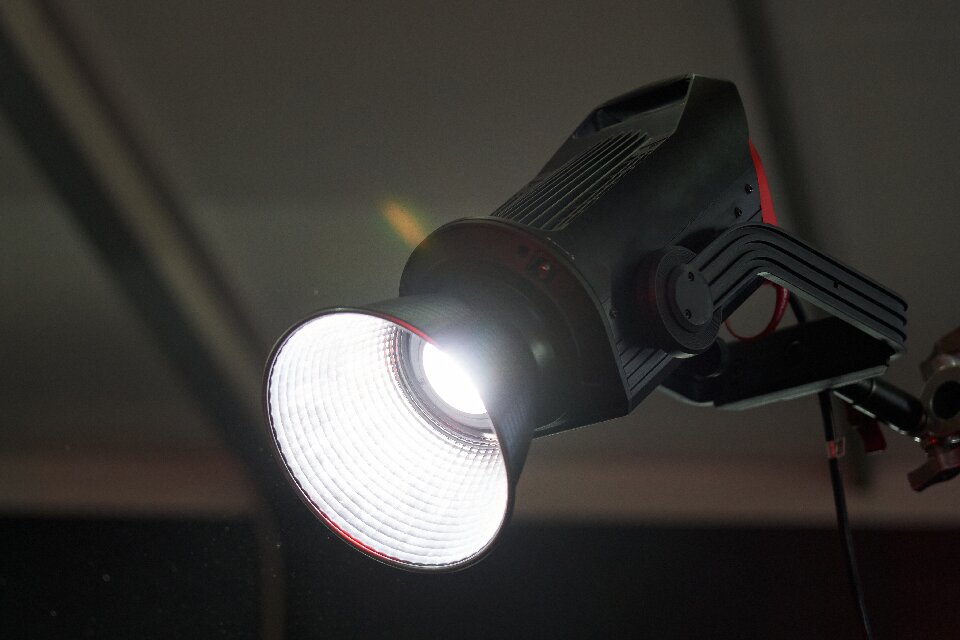
For instance, a 60-watt incandescent bulb costs approximately $6.60 to operate for 1,000 hours, while a comparable 12-watt LED bulb only costs about $1.32 for the same duration. This stark contrast highlights that LED bulbs can use up to 80% less energy, translating to annual savings of around $65 for an average household, compared to $394.20 for incandescent bulbs and $98.55 for compact fluorescent lamps (CFLs).
Furthermore, LED lights boast an impressive lifespan of up to 50,000 hours, significantly reducing replacement and maintenance costs compared to traditional bulbs that may only last 1,000 to 10,000 hours. Overall, while the initial investment in LED lighting may be higher, the long-term savings on energy bills and reduced frequency of replacements make them the more cost-effective option for both residential and commercial use.
Conclusion
Now you'll have a much clearer idea about how much it costs to run LED lights. Obviously, the price varies greatly depending on the type and number of LED lights you're using. While LED lights may have a higher upfront cost compared to traditional lighting options, their energy efficiency, longevity, and cost-saving benefits make them a worthwhile investment in the long run. By opting for LED lights, individuals can enjoy the advantages of reduced energy consumption, lower maintenance expenses, and a more sustainable approach to lighting.
FAQs about How Much Do LED Lights Cost
How much does it cost to leave a light on all day?
If you are running a standard LED light bulb with a wattage of 10 watts (0.01 kilowatts) and an electricity rate of $0.12 per kilowatt-hour. To calculate the cost, multiply the wattage by the number of hours in a day, and then multiply the daily energy consumption by the electricity rate: 0.01 kW x 24 hours x $0.12/kWh = $0.0288.
Therefore, leaving this 10-watt LED light bulb on all day would cost approximately $0.0288 per day in electricity fees.
How much are LED lights?
As a general idea, basic LED light bulbs can range from a few dollars to around $20. Specialized LED lights, such as LED strip lights or smart LED bulbs, may cost you more.
Do grow lights use a lot of electricity?
Not really. Compared to traditional lighting options, LED grow lights are more energy-efficient and consume less electricity, which is good for potential energy savings.
What are the key takeaways about the cost of LED lights?
The key takeaways are that LED lights offer lower energy consumption, longer lifespan, and significant cost savings over time compared to traditional lighting options.

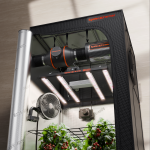
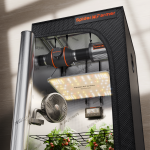
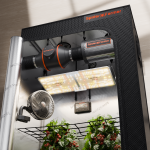
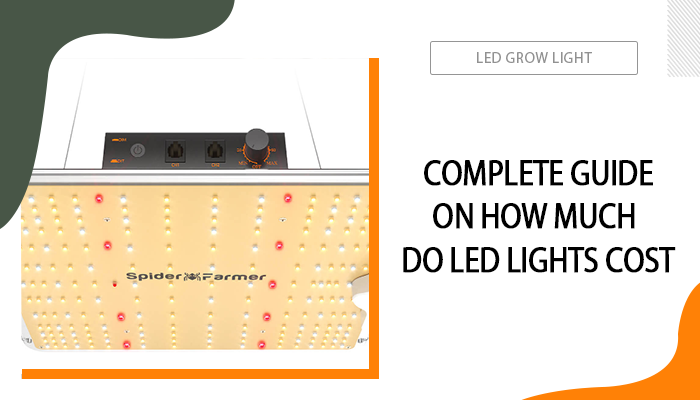


Thanks for your information. I hope to put it to use this year (2024).
Now I’m using the se5000 and I actually lowered my electricity bill from the previous 3 different units I used for flowering, 2x 150w and a 120w usually by week 6 flower I would max out those lights but with this unit I’m getting much better and more productivity overall and I haven’t made it past %80 on the dial.
love for your products!
The real world cost of running is LED lights is amazing! Currently I have an SF2000 paired with an SF1000 and I’ve been astonished how little of an impact it’s had on my utility bill, wouldn’t even consider other light options
<3 <3
Very informative post thank you!
i love saving money
Good read thanks for posting
That’s a great bit of information. I have a sf1000 currently and a sf1000d on the way. Of course I’ve been concerned what these costs are. But an average of $0.15 a day for the sf1000 is a relief. I just started growing. I was using g fluorescent lights and a box to grow in. After a month I decided to do it right and now I’ve got a light currently with a whole tent kit and another light on the way and your prices are great. I hope to be satisfied with my most recent purchase and I will do more reviews and spread the word as much as I can. Really loving Spider Farmer.
?
I just began also. I beat around the bush for a few months and was going to slowly start adding a few things to my collection. I finally decided to just try and do it the right way the first time and take the hit all at once. I ended up getting the 3×3 tent kit with 4″ inline fan kit and their newer bar style SE3000 300 watt light. I’m glad I did. It was hard to fork out the initial expense but I’m sure I saved in the long run over piecing stuff together when I had the extra money. There is always more stuff needed than what you take into consideration (for me anyhow) so I’m still adding stuff to my collection as I go along. Good luck with your setup!